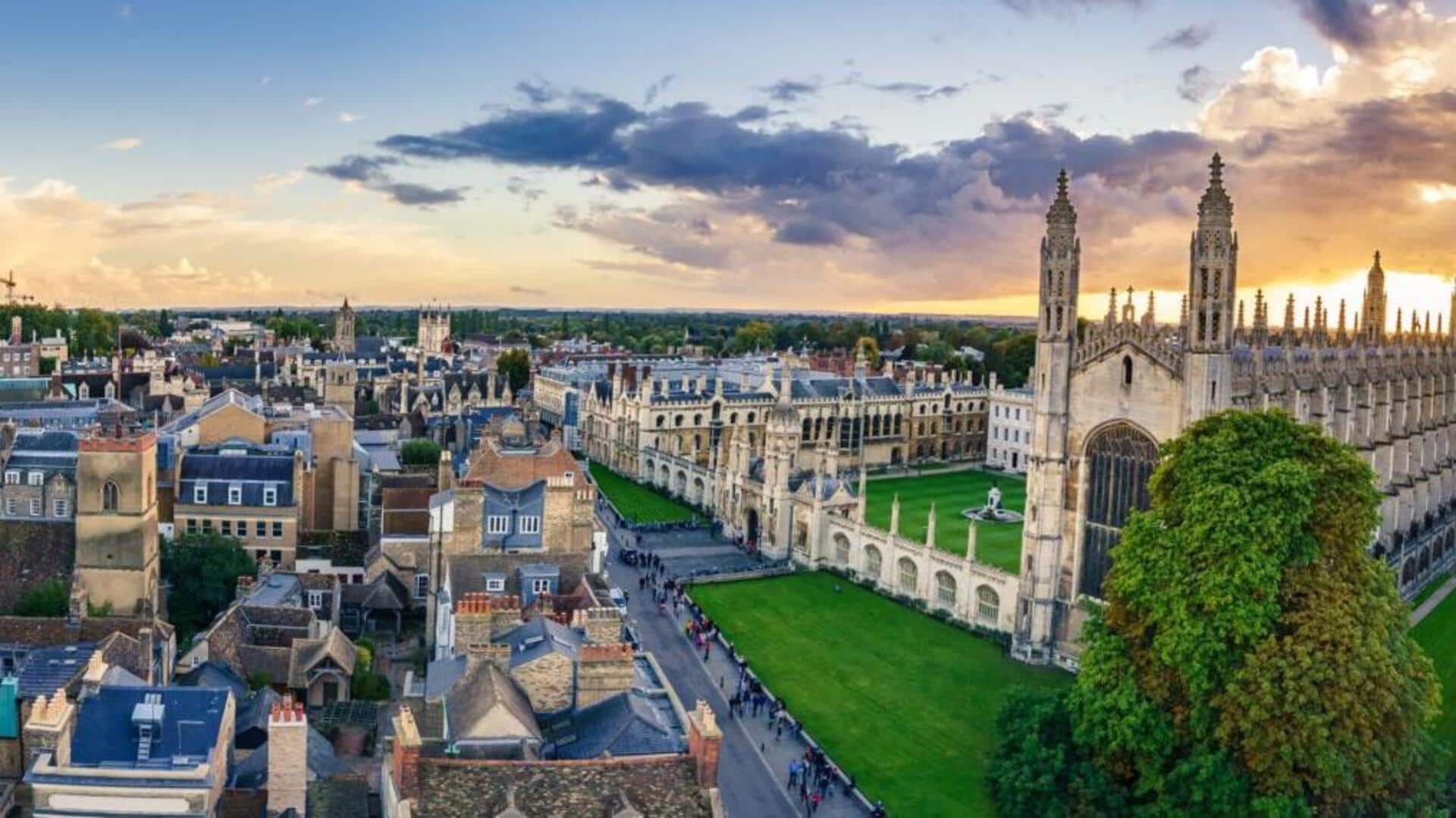
Exploring Cambridge's scientific marvels
What's the story
Cambridge, a historic city in the UK, is not just famous for its prestigious university but also for being a cradle of groundbreaking scientific discoveries. This city has been home to many scientists whose work has shaped our understanding of the world. From iconic laboratories to museums, Cambridge offers a unique journey through the history of science.
Double helix
The birthplace of DNA discovery
In 1953, the Cavendish Laboratory was where Francis Crick and James Watson made the landmark discovery of the double helix structure of DNA, altering biology forever. Visitors can explore the laboratory's exterior and nearby exhibitions that highlight this and other scientific achievements. It's a pilgrimage destination for those fascinated by genetics and molecular biology, attracting scholars and enthusiasts from around the world.
Observatory nights
Gaze at the stars like never before
The Cambridge Observatory, founded in 1823, offers an unparalleled glimpse into the cosmos. Although it's primarily a research facility, public open nights allow visitors to explore the universe through its historic telescopes. These events are a rare opportunity to walk in the footsteps of astronomers who have used these instruments to unlock the secrets of our universe.
Darwin's garden
Unlocking secrets of evolution
Down House, located on the outskirts of Cambridge, was the residence of Charles Darwin, where he authored On the Origin of Species. The gardens and greenhouse, pivotal to Darwin's experiments, are accessible to visitors. Walking through these areas offers a unique perspective into Darwin's thought processes and the meticulous observations that led him to formulate his revolutionary theory of natural selection.
Faraday's fieldwork
The genius behind electromagnetism
The Trinity College Library, renowned for its extensive book collection, also honors Michael Faraday, an alumnus who significantly advanced electromagnetism and electrochemistry. Access to Faraday's original manuscripts is restricted, but exhibitions frequently showcase his contributions alongside those of other distinguished scientists. These displays offer an intriguing look at his enduring legacy, making it a must-visit for science enthusiasts.
Code breakers
Computing history at your fingertips
The Center for Computing History in Cambridge highlights its critical role in computing from wartime code-breaking to the digital age. Visitors can interact with vintage computers and learn about their evolution. This museum demonstrates how Cambridge's innovations have influenced the digital world, making it a key destination for those interested in the history and progress of computing technology.